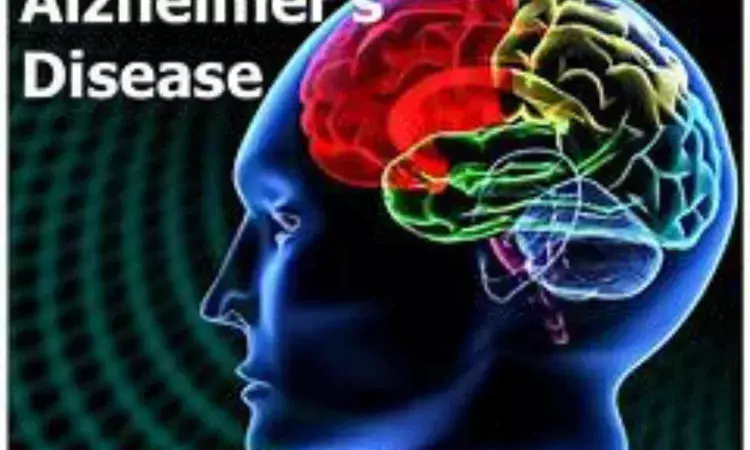- Home
- Medical news & Guidelines
- Anesthesiology
- Cardiology and CTVS
- Critical Care
- Dentistry
- Dermatology
- Diabetes and Endocrinology
- ENT
- Gastroenterology
- Medicine
- Nephrology
- Neurology
- Obstretics-Gynaecology
- Oncology
- Ophthalmology
- Orthopaedics
- Pediatrics-Neonatology
- Psychiatry
- Pulmonology
- Radiology
- Surgery
- Urology
- Laboratory Medicine
- Diet
- Nursing
- Paramedical
- Physiotherapy
- Health news
- Fact Check
- Bone Health Fact Check
- Brain Health Fact Check
- Cancer Related Fact Check
- Child Care Fact Check
- Dental and oral health fact check
- Diabetes and metabolic health fact check
- Diet and Nutrition Fact Check
- Eye and ENT Care Fact Check
- Fitness fact check
- Gut health fact check
- Heart health fact check
- Kidney health fact check
- Medical education fact check
- Men's health fact check
- Respiratory fact check
- Skin and hair care fact check
- Vaccine and Immunization fact check
- Women's health fact check
- AYUSH
- State News
- Andaman and Nicobar Islands
- Andhra Pradesh
- Arunachal Pradesh
- Assam
- Bihar
- Chandigarh
- Chattisgarh
- Dadra and Nagar Haveli
- Daman and Diu
- Delhi
- Goa
- Gujarat
- Haryana
- Himachal Pradesh
- Jammu & Kashmir
- Jharkhand
- Karnataka
- Kerala
- Ladakh
- Lakshadweep
- Madhya Pradesh
- Maharashtra
- Manipur
- Meghalaya
- Mizoram
- Nagaland
- Odisha
- Puducherry
- Punjab
- Rajasthan
- Sikkim
- Tamil Nadu
- Telangana
- Tripura
- Uttar Pradesh
- Uttrakhand
- West Bengal
- Medical Education
- Industry
Alzheimer's Diagnosis Improved with Highly Accurate Blood Biomarkers: JAMA

Sweden: A study published in JAMA revealed that blood biomarkers for amyloid beta and tau protein are highly effective in diagnosing Alzheimer's disease (AD) in patients with cognitive symptoms seen in primary and secondary care settings.
The APS2 blood test demonstrated high diagnostic accuracy for identifying Alzheimer's disease in individuals with cognitive symptoms in primary and secondary care settings, outperforming traditional clinical evaluations that do not utilize Alzheimer's disease biomarkers, the study stated.
Dementia specialists achieved a diagnostic accuracy of 73% for clinical Alzheimer’s disease, compared to 91% when using the APS2 test. Primary care physicians had a diagnostic accuracy of 61% without the APS2, which improved to 91% with its use, the researchers reported.
One in five women and one in ten men develop dementia due to Alzheimer's disease. Individuals with cognitive symptoms are initially seen in primary care, with only a few being referred to secondary care. In specialized clinics, symptomatic Alzheimer's disease is misdiagnosed in 25% to 35% of patients, with the likelihood of higher misdiagnosis rates in primary care. Diagnostic tests, often only available at specialized clinics, such as positron emission tomography (PET) or cerebrospinal fluid analysis to assess Alzheimer's disease biomarkers, help reduce the rate of misdiagnosis.
Sebastian Palmqvist, MD, PhD et. al. aimed to evaluate an accessible Alzheimer's disease blood test in both primary and secondary care settings using predefined biomarker cutoff values.
For the study, 1,213 patients undergoing clinical evaluation for cognitive symptoms were examined between February 2020 and January 2024 in Sweden. The biomarker cutoff values, established in an independent cohort, were applied to a primary care cohort (n = 307) and a secondary care cohort (n = 300); each patient had one plasma sample analyzed in a single batch per cohort. The blood test was then prospectively evaluated in the primary care cohort (n = 208) and the secondary care cohort (n = 398); one plasma sample per patient was sent for analysis within two weeks of collection.
The key findings of the research are as follows:
- Cognitive conditions among the patients included 23% with subjective cognitive decline, 44% with mild cognitive impairment, and 33% with dementia.
- Alzheimer's disease pathology was found in 50% of patients in both primary and secondary care assessments.
- In the primary care cohort, 307 patients were initially assessed, and 208 were evaluated prospectively; in the secondary care cohort, 300 were initially assessed, and 398 were evaluated prospectively.
- When plasma samples were analyzed in a single batch for the primary care cohort, the AUC was 0.97, with a PPV of 91% and an NPV of 92%; in the secondary care cohort, the AUC was 0.96, with a PPV of 88% and an NPV of 87%.
- In the prospective analysis (biweekly) of the primary care cohort, the AUC was 0.96, with a PPV of 88% and an NPV of 90%; in the secondary care cohort, the AUC was 0.97, with a PPV of 91% and an NPV of 91%.
- Diagnostic accuracy across all cohorts ranged from 88% to 92%.
- Primary care physicians had a diagnostic accuracy of 61% using standard clinical methods versus 91% using the APS2.
- Dementia specialists had a diagnostic accuracy of 73% using standard clinical methods versus 91% using the APS2.
- Overall, the diagnostic accuracy using APS2 (90%) was comparable to using the percentage of p-tau217 alone (90%).
The researchers concluded that both the APS2 and the percentage of p-tau217 alone exhibited high diagnostic accuracy for identifying Alzheimer's disease in individuals with cognitive symptoms in both primary and secondary care settings using predefined cutoff values.
Reference:
Palmqvist S, Tideman P, Mattsson-Carlgren N, et al. Blood Biomarkers to Detect Alzheimer Disease in Primary Care and Secondary Care. JAMA. Published online July 28, 2024. doi:10.1001/jama.2024.13855
Dr Kamal Kant Kohli-MBBS, DTCD- a chest specialist with more than 30 years of practice and a flair for writing clinical articles, Dr Kamal Kant Kohli joined Medical Dialogues as a Chief Editor of Medical News. Besides writing articles, as an editor, he proofreads and verifies all the medical content published on Medical Dialogues including those coming from journals, studies,medical conferences,guidelines etc. Email: drkohli@medicaldialogues.in. Contact no. 011-43720751


